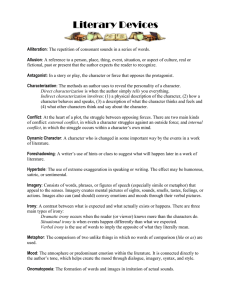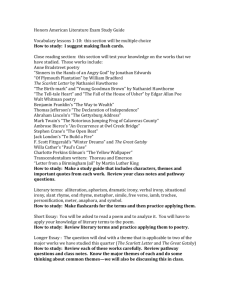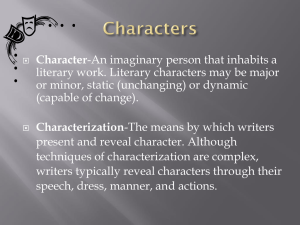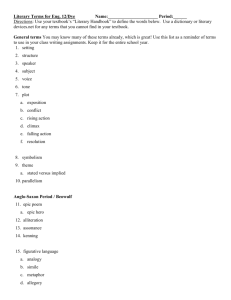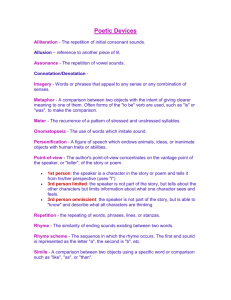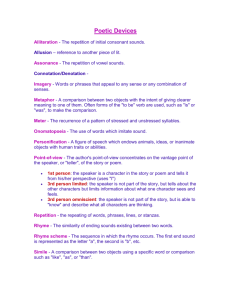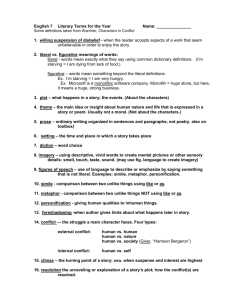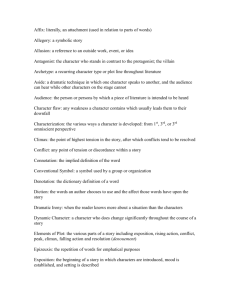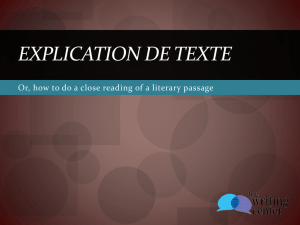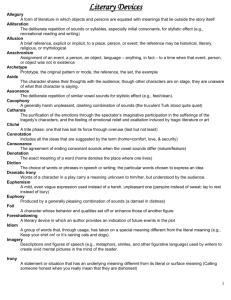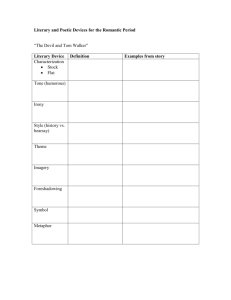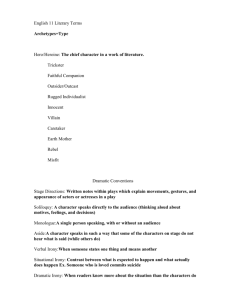Final Exam: 10 Intensified For your final exam, you will be given one
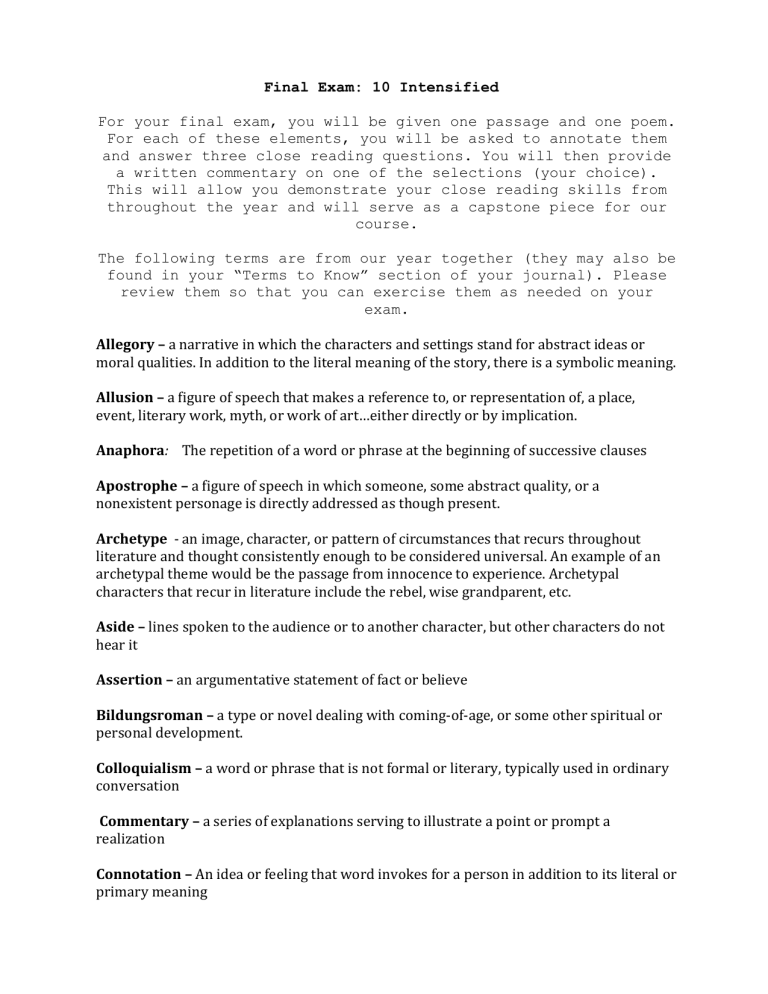
Final Exam: 10 Intensified
For your final exam, you will be given one passage and one poem.
For each of these elements, you will be asked to annotate them and answer three close reading questions. You will then provide a written commentary on one of the selections (your choice).
This will allow you demonstrate your close reading skills from throughout the year and will serve as a capstone piece for our course.
The following terms are from our year together (they may also be found in your “Terms to Know” section of your journal). Please review them so that you can exercise them as needed on your exam.
Allegory – a narrative in which the characters and settings stand for abstract ideas or moral qualities. In addition to the literal meaning of the story, there is a symbolic meaning.
Allusion – a figure of speech that makes a reference to, or representation of, a place, event, literary work, myth, or work of art…either directly or by implication.
Anaphora: The repetition of a word or phrase at the beginning of successive clauses
Apostrophe – a figure of speech in which someone, some abstract quality, or a nonexistent personage is directly addressed as though present.
Archetype - an image, character, or pattern of circumstances that recurs throughout literature and thought consistently enough to be considered universal. An example of an archetypal theme would be the passage from innocence to experience. Archetypal characters that recur in literature include the rebel, wise grandparent, etc.
Aside – lines spoken to the audience or to another character, but other characters do not hear it
Assertion – an argumentative statement of fact or believe
Bildungsroman – a type or novel dealing with coming-of-age, or some other spiritual or personal development.
Colloquialism – a word or phrase that is not formal or literary, typically used in ordinary conversation
Commentary – a series of explanations serving to illustrate a point or prompt a realization
Connotation – An idea or feeling that word invokes for a person in addition to its literal or primary meaning
Denotation – The literary or primary meaning (definition) of a word.
Dramatic irony – When the reader understands more about the events of a story than the character
End-stopped lines – lines that end with a punctuation mark
Evidence – available body of facts or information indicating whether a belief or proposition is true or valid
Eye rhyme – ryhme that appears correct from spelling, but it half rhyme or slant rhyme by pronunciation
Juxtaposition – items or concepts that are placed closed to one another in order to achieve a contrasting effect
Imagery - visually descriptive or figurative language, esp. in a literary work. Never just say “imagery” – you need an adjective in front of it. What type of imagery?
Magical realism – style of fiction, commonly associated with contemporary Latin
American writers, in which fantasy and reality are casually combined, producing humorous and thought-provoking results.
Motif - recurring images, words, objects, phrases, or actions that tend to unify a work of literature
Situational irony – when what actually happens is the opposite of what is expected
Subtext – an underlying and often distinct theme in a piece of writing or conversation that is not explicitly written or stated
Synecdoche – a figure of speech in which a “part” of something is used figuratively to refer to the whole. Example – “All hands on deck”
Tragic flaw – a personal failing that results in a choice that leads to the hero’s tragic end
Tragic hero – a noble figure who is admirable in many ways, but has a personal failing that leads to their tragic end
Verbal irony – A character says one thing but means the opposite (sarcasm)
